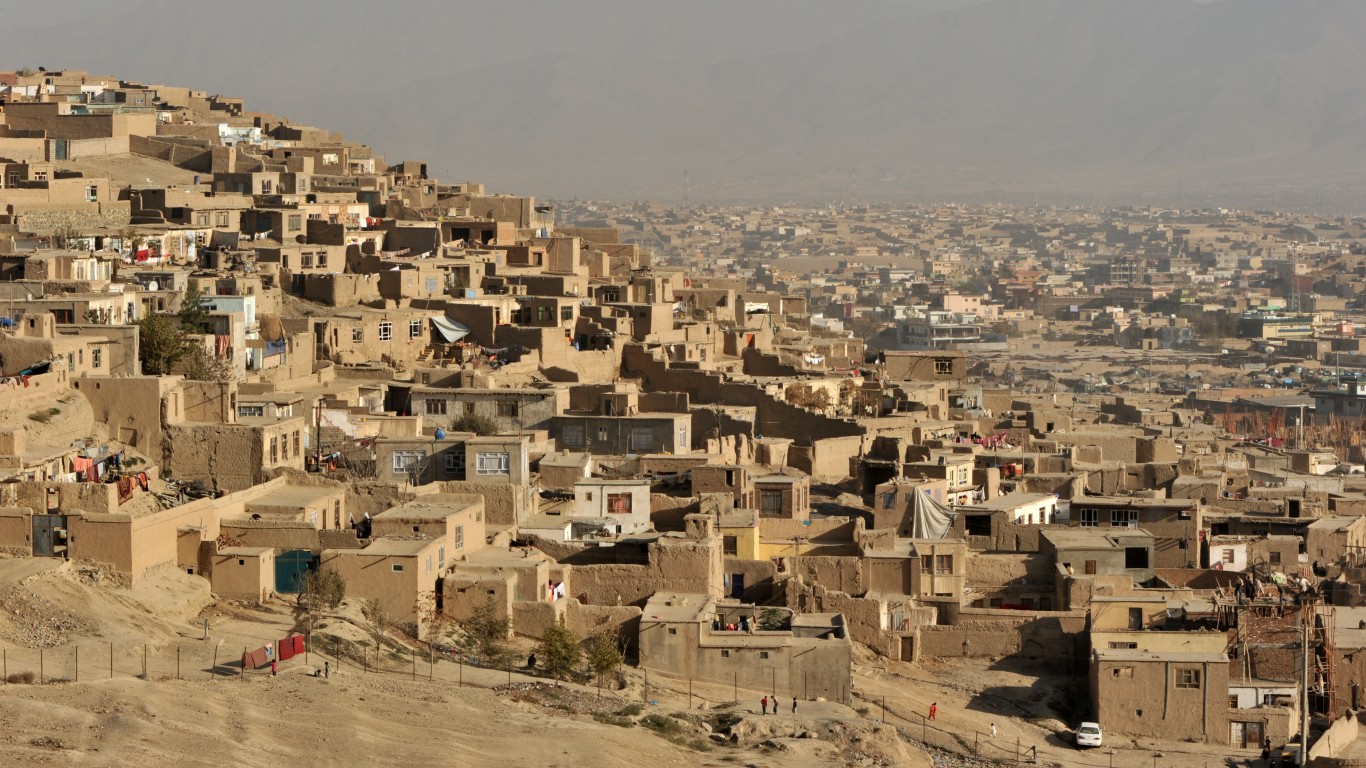Commodities & Metals
Is Afghanistan Sitting on $3 Trillion Worth of Mineral Wealth?

Published:

In 2007, six years after the United States sent troops to Afghanistan, the U.S. Geological Survey (USGS) published a preliminary assessment of the country’s mineral resources, excluding energy sources like oil and gas. In 2010, Afghanistan’s mineral wealth was estimated to be worth $1 trillion.
Among the country’s resources are lithium and rare earth elements (REEs), both critical for electric vehicle batteries and tech devices like smartphones. Iron ore and copper were estimated to be present in quantities that were large enough to make the country a major global producer of both.
Last year, The Diplomat published an article by Ahmad Shah Katawazai, a member of Afghanistan’s Academy of Sciences and a former diplomat at the Afghan embassy in Washington, D.C., that raised the estimated value of Afghanistan’s minerals to as much as $3 trillion.
Looking at just the REEs, Katawazai cited a USGS estimated deposit of 1.1 million to 1.4 million metric tons. If that turned out to be true, Afghanistan’s deposits would rank near the United States and Greenland, which are each estimated to have 1.5 million metric tons of REEs. China, the world’s richest in REE deposits, has an estimated 44 million metric tons of the elements.
Between 2007 and 2020, according to Katawazai, illegal mining operations were costing the government about $300 million annually. The beneficiaries were the country’s warlords and insurgencies like the Taliban.
Are you ahead, or behind on retirement? For families with more than $500,000 saved for retirement, finding a financial advisor who puts your interest first can be the difference, and today it’s easier than ever. SmartAsset’s free tool matches you with up to three fiduciary financial advisors who serve your area in minutes. Each advisor has been carefully vetted and must act in your best interests. Start your search now.
If you’ve saved and built a substantial nest egg for you and your family, don’t delay; get started right here and help your retirement dreams become a retirement reality.
Thank you for reading! Have some feedback for us?
Contact the 24/7 Wall St. editorial team.